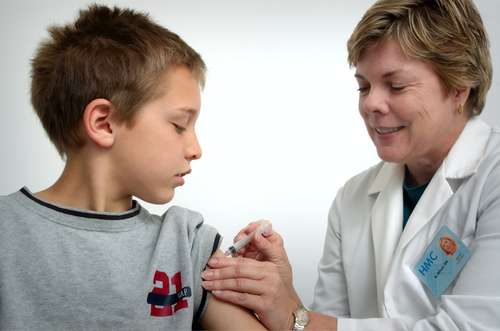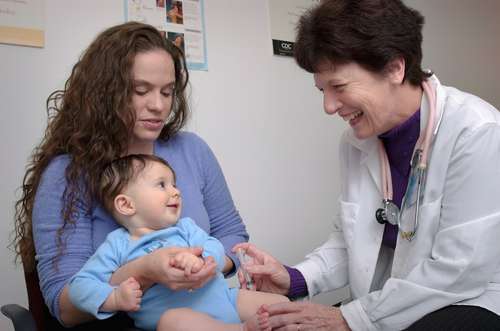When we talk about health risks, especially in the context of cancer survivors, certain complications might seem unexpected at first glance. Throat cancer, for instance, not only challenges the individual with its immediate impact but also sets off a cascade of related health issues. It turns out that both the condition itself and the treatments involved can open the door to further problems like pneumonia. And if you blend that with the natural vulnerabilities of aging, the risk compounds even further.
This discussion is particularly relevant for anyone who has followed the career of the kilmer actor, whose real-life battle with throat cancer has raised public awareness about these interconnected risks. With age as another contributing factor, the way our bodies respond to infections like pneumonia becomes even more unpredictable. It's a reminder that our lifestyle choices and underlying genetic conditions, such as the v leiden mutation or the fvl mutation, can play a big role in our overall health.
Understanding the Connection Between Throat Cancer and Pneumonia Risk
Let’s take a closer look at how throat cancer can pave the way for pneumonia. This section will help you understand the mechanics behind these health challenges and why they often occur together.
The treatments for throat cancer, which can include surgery and radiation, are aggressive by nature. While they target cancer cells, they can also inadvertently weaken the surrounding tissues and compromise lung function. This is especially true when the cancer has affected areas that are crucial for swallowing and breathing. An inactive lifestyle, combined with a sedentary life style, further limits lung recovery, making it easier for infections to take hold.
Moreover, when the lungs are weakened, even a common virus can sometimes trigger pneumonia. Much like a small spark can ignite a wildfire, a weakened respiratory system can set off a serious infection. People who are in the latter stages of treatment or those who are recovering often experience these cascading effects. In this context, each treatment decision is a balance between curing cancer and protecting overall health.
Often, discussions around this topic bring up names like val kilmer and kilmer val in reference to the well-known actor and his public journey with throat cancer. His story, as well as what we learn from it, sheds light on how vital it is to anticipate complications like pneumonia. It’s not just about surviving cancer, but also about guarding against the subsequent health challenges that may arise.
How Age Amplifies Pneumonia Vulnerability
Age is a big player in the risk of pneumonia, and when combined with the aftermath of throat cancer treatments, adults face a double whammy. In this segment, we'll explore how aging makes the battle against pneumonia even steeper.
Aging naturally brings about changes in our immune system and a general decline in organ function. Over the years, the lungs tend to lose some of their elasticity, making them more susceptible to infections. When you think about it, this is why older adults often need extra care during the flu season or outbreaks of respiratory illnesses. The situation is further complicated if a person has undergone treatments for throat cancer, as these procedures sometimes result in long-lasting respiratory impairment.
Imagine your lungs as a well-oiled machine; over time, wear and tear reduce its efficiency, much like a car that hasn't had regular maintenance. Even a minor setback, such as a respiratory infection in an older adult, can lead to pneumonia if the body's defenses are weakened. Factors like an inactive lifestyle add to this burden, reducing overall stamina and the body’s ability to combat infections naturally.
It’s crucial to note that some individuals may also have underlying genetic mutations, like the v leiden mutation or fvl mutation, which can exacerbate inflammation and clotting issues, further complicating recovery. The interplay of these factors illustrates why extra vigilance is necessary when dealing with an aging population, especially those who have faced throat cancer.
Prevention and Management: Staying Ahead of Pneumonia
This section is all about taking proactive steps to minimize the risks. Pneumonia is often preventable, and understanding its connection with throat cancer and age can inspire better health practices.
Firstly, it’s essential to keep an eye on respiratory health post-treatment. Regular check-ups and early detection are key to preventing complications. For those who are fans of films val kilmer or have followed the legacy of tombstone val kilmer, you know that resilience often lies in taking charge of one's health. There’s a clear need for vigilance, especially if you lead an inactive lifestyle or a sedentary life style, as these habits can pave the way for several respiratory issues, including pneumonia.
Another important aspect is physical activity. Engaging in even moderate exercise can help boost lung capacity and overall immune function. Think about it this way: you're giving your lungs a workout to keep them in shape! Regular physical activity can make a significant difference in fortifying the body against infections, particularly for those recovering from the intensity of throat cancer treatments.
Additionally, consider dietary changes and stress management techniques. Simple changes like incorporating more fresh fruits and vegetables, staying hydrated, and even practicing deep-breathing exercises can contribute to better lung health. These daily habits, though small, collectively play a big role in reducing the likelihood of pneumonia. It’s all about making incremental improvements in your health routines.
Now, you might be wondering how genetic factors like the v leiden mutation influence this scenario. While not everyone will have such predispositions, knowing your family health history can alert you to potential risks. Combined with an understanding of the consequences of throat cancer treatments, this information is invaluable for prevention strategies.
Health experts emphasize that a combination of medical guidance and lifestyle adjustments is the most effective route to better health. By taking steps to stay active and paying close attention to respiratory symptoms, especially as you grow older, you can make a significant dent in the odds of developing pneumonia.
In many ways, preventing pneumonia in individuals who have battled throat cancer or who are simply aging is about staying informed and proactive. It’s not just about surviving cancer, but flourishing long afterwards, even in the face of additional health challenges.
Conclusion
In summary, both throat cancer and advanced age significantly increase the risk of developing pneumonia. The aggressive nature of cancer treatments can leave the lungs vulnerable, while the natural aging process diminishes our resilience against infections. Through careful monitoring, lifestyle adjustments, and regular medical check-ups, it’s possible to manage these risks effectively. Remember, whether you're a fan of the kilmer actor or have followed the journey of val kilmer, the lessons learned from these experiences are invaluable. Stay informed, stay active, and most importantly, keep your health a priority.




